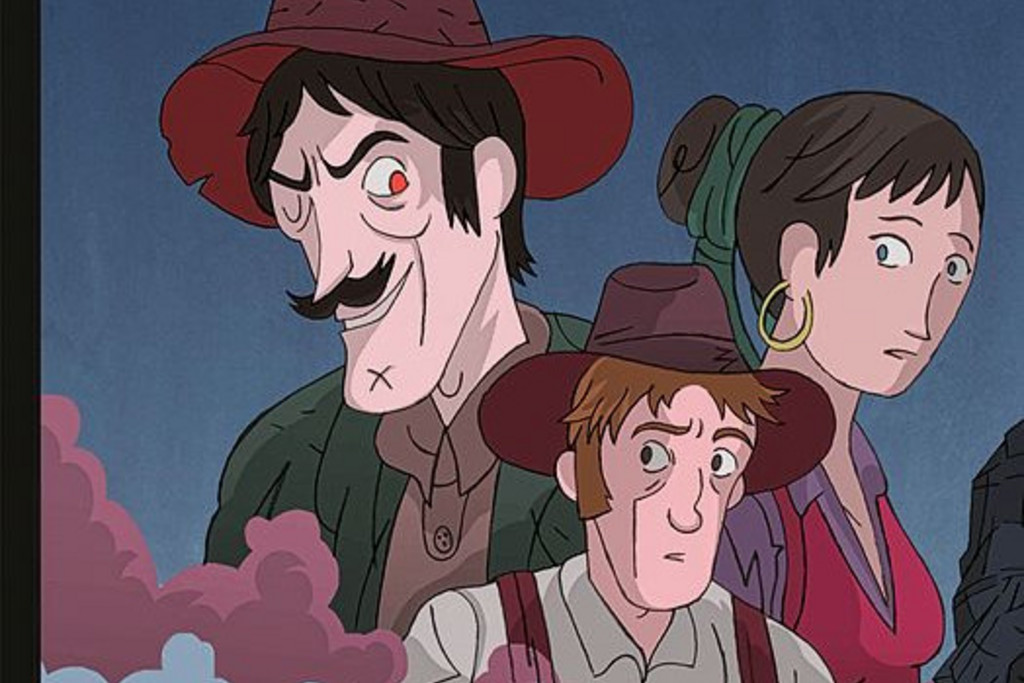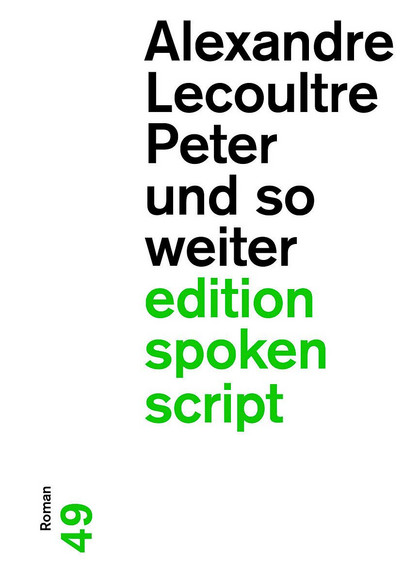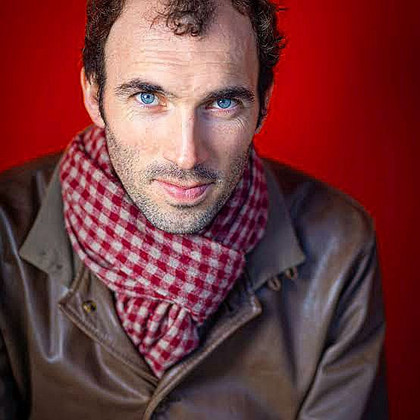
A tale of two languages

Growing older means redefining yourself

Declaration of love for the threatened Alpine glaciers

Zep asks Titeuf to save the planet

Poetic tributes to the lonely deceased

The tale of a valley

“La grande peur dans la montagne”


“Peter und so weiter” is a somewhat bizarre book with the same title in the German translation as in the French original. Geneva-born Berne resident Alexandre Lecoultre tells a tale of a lovable eccentric who loiters around town, occasionally helping out in a shop and being interrupted by the words “und so weiter” (“and so on”) when talking in the pub. Some know him as Peter, to others he is Pietro, the author calls him “Peterli, du Fröschli” (“Peter the little frog”).

Everyone knows him and Peter knows about everything going on in the village without really being a part of it himself. “For some time people have been wanting him to be somebody but Peter doesn’t know who.” He’s always wandering “through all the streets” in all directions so as not to miss anything. He likes going to the wasteland most. It’s a meaningless wilderness that Peter likes because the wasteland, like Peter, does not readily fit into the orderly world. Something “needs to be done with it”, say the others.

Alexandre Lecoultre’s novel, which won a Swiss literary prize in 2021, accompanies this drifter with empathy and wordplay on his way through the village, which is also an agglomeration and city and, in fact, Zurich. This fuzziness is a recurring feature in the restrained book. The author also creates a spatial buffer through the language. “Peter und so weiter” oscillates between the different ways of speaking. Use of Swiss German dialect, such as in words like “öppis” or “momoll”, creates a surprise effect in the French original, as do the vestiges of French and dialectal phrases in the German version. On occasion, Peter’s tongue is so tied up that an unintelligible hotch-potch comes out “glauche, roichts, lechts, rinks, drechts”.
There is a familiarity about the language among all the agitation. And it sharpens Peter’s awareness of the finer details on the periphery, while the big questions are no more than a distant echo in his world. The quality of this consistent, gentle book lies in its lack of intent. Peter does not conform to the smooth progression of a day at work. The significance of the wasteland is that the excavators and cranes will shortly move in. The “village” has no place for disorder, wasteland or tranquility. Lecoultre’s jovial man about town drives that point home.

Comments